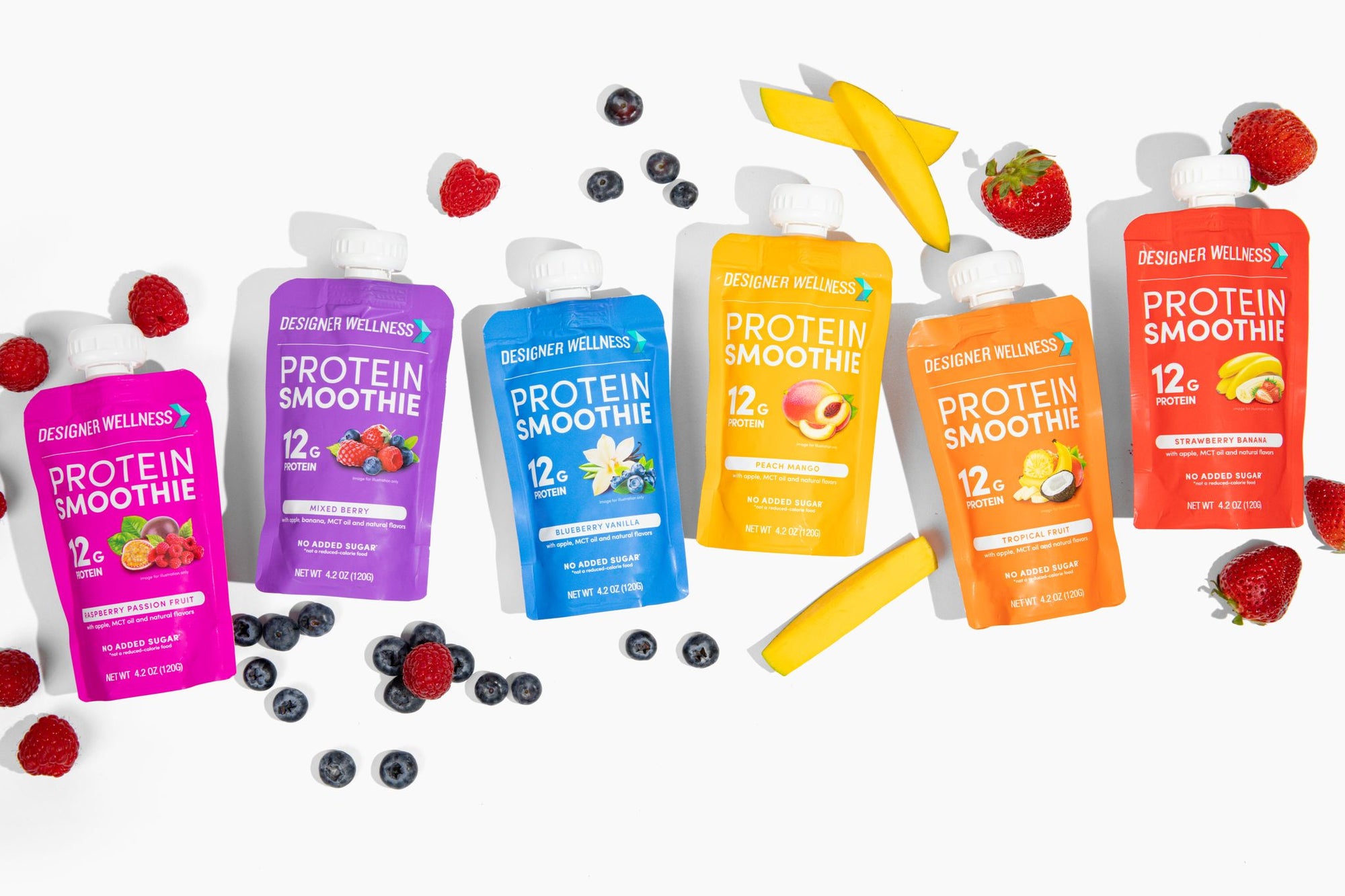FAQs

PLANT PROTEIN QUESTIONS
We use a combination of pea and rice proteins in our meal replacement.
We recommend using a serving of this product once per day.
Some customers use our plant-based products due to dietary restrictions or lifestyle and we don't recommend mixing animal products with plant products for those people.
However, our Designer Plant Meal Replacement can, of course, be mixed with milk, your favorite non-dairy beverage, water or juice.
Designer Plant Meal Replacement Belgian Chocolate contains 8 grams of soluble fiber and 2 grams of insoluble fiber.
Designer Plant Meal Replacement Madagascar Vanilla contains 9 grams of soluble fiber and 1 gram of insoluble fiber.
The fat in this product is derived from sunflower oil.
Yes, Designer Plant Meal Replacement is dairy free and is suitable for those who are lactose intolerant.
Yes, Designer Plant Meal Replacement is gluten free.
No, Designer Plant Meal Replacement contains 3 grams of sugar per serving and is sweetened with stevia and monk fruit.
Yes, Designer Plant Meal Replacement is certified vegan.
Yes, it contains all the essential amino acids (EAAs).
It’s the immature coffee bean which is very high in antioxidants. There is no caffeine in the product or any caffeine coming from the coffeeberry extract.
Both fiber and protein are critical elements and important components of your diet. Combining fiber and protein can lead to better health. It can also help with weight maintenance and weight loss, muscle recovery, mental stress and physical stress.
Fiber is paramount to keeping the digestive system healthy. Fiber helps with immunity and recovery from physical and mental stress or fatigue.
Prebiotic fiber is a specialized plant fiber that beneficially nourishes the good bacteria already in the large bowel or colon. The body itself does not digest these plant fibers; instead, the fibers act as a fertilizer to promote the growth of many of the good bacteria in the gut. These, in turn, provide many digestive and general health benefits
Prebiotic is the food that feeds the live microorganisms ("bugs") in the intestine, probiotic are the actual organisms.
Baobab is a fruit from a tree native to Africa that contains key electrolytes needed for physical activity and recovery.
Spinach is known for its iron content and contains an abundance of calcium, vitamin A, vitamin C (an antioxidant), vitamin K1 and folic acid. It's also a good source of chlorophyll which benefits digestion.
Spinach is rich in the carotenoids beta-carotene and lutein. It's also a rich source of the antioxidant quercetin.
Kale contains an abundance of special compounds called glucosinolates, which are known for their powerful detoxification properties and ability to support healthy cells.
Kale also contains lutein, zeaxanthin and other carotenoids, vitamins and minerals that make it incredibly nutritious.
Superfoods are nutrient-rich foods, beneficial for health and wellness.
We recommend one serving per day.
Yes, you can bake with it. However, the baking process destroys some of the nutrients.
Yes, the prebiotic fiber helps with protein digestion and provides a good food source for our bodies own healthy bacteria found in the gut.
The probiotics are added to help nurture a healthy digestive tract and create a better recovery environment after stressful or highly taxing activities.
